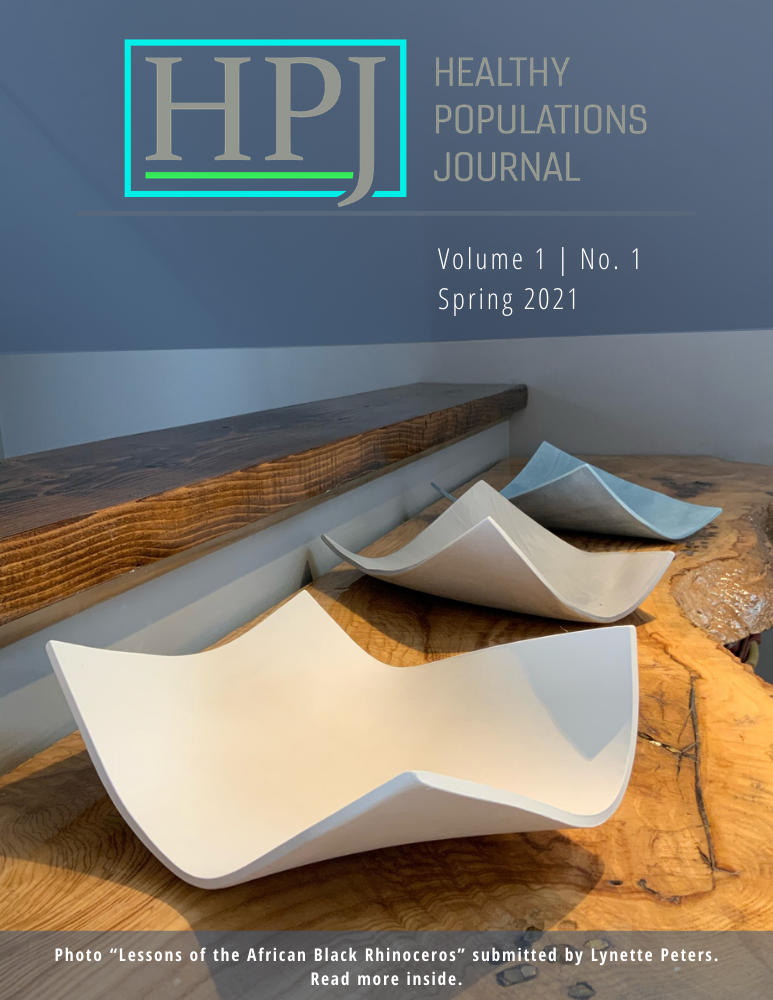African Nova Scotian Grit: A Scholarly Personal Narrative About Nursing Leadership
DOI:
https://doi.org/10.15273/hpj.v1i1.10648Abstract
As an African Nova Scotian (ANS) woman, registered nurse, full-time doctoral candidate and activist, I have decided to share key moments from my experience navigating academia. I discuss how being an ANS woman is significant to this journey as well as the ways in which anti-Black racism reinforces the underrepresentation of Black folks in nursing. The purpose of this scholarly personal narrative (SPN) is to generate meaning from my journey to becoming a nurse leader. The guiding question for this work is: What is the experience of an ANS woman in becoming a nurse leader? Guided by Narrative Inquiry and Black feminist theory, my SPN uses the Ten Tentative Guidelines for Writing SPNs offered by Nash (2004). This unconventional approach to research situates stories as the fundamental unit of measurement which emphasizes the significance and meaning of our lives. The iterative approach to this reflective exercise produced two key overarching themes, namely: Developing Personal and Professional Identity, and Potential vs. Power. Each theme contains additional subthemes that capture salient elements of my journey to nursing leadership. This SPN has implications for both education and the nursing profession. For education, this work offers insight to address institutional barriers that perpetuate anti-Black racism. Improving program access for Black students, providing adequate resources to facilitate success and ensuring the representation of Black students, staff and faculty throughout institutions are vital. Likewise, similar insights apply to nursing in the areas of practice, education, research and policy. Specifically, addressing issues of representation and visibility, to foster inclusivity, within the profession is essential.
References
Bell, B. (2021). White dominance in nursing education: A target for anti-racist efforts. Nursing Inquiry 28(1), Article e12379. https://doi.org/10.1111/nin.12379
Bernard, W. T., & Smith, H. (2018). Injustice, justice, and Africentric practice in Canada. Canadian Social Work Review, 35 (1), 149–157. https://doi.org/10.7202/1051108ar
Canadian Nurses Association. Position statement: Nursing leadership. https://www.cna-aiic.ca/-/media/cna/page-content/pdf-en/nursing-leadership_position-statement.pdf
Carruthers, C. A. (2018). Unapologetic: A Black, queer, and feminist mandate for radical movements. Beacon.
Clandinin, D. J. (Ed.). (2007). Handbook of narrative inquiry: Mapping a methodology. Sage Publications.
Collins, P. H. (2000). Black feminist thought: Knowledge, consciousness, and the politics of empowerment (2nd ed.). Routledge.
Etowa, J. B., Sethi, S., & Thompson-Isherwood, R. (2009). The substantive theory of surviving on the margin of a profession. Nursing Science Quarterly 22(2), 174–181.Flynn, K. (2011). Moving beyond borders: A history of Black Canadian and Caribbean women in the diaspora. University of Toronto Press.
Henry, F., Enakshi, D., James, C. E., Kobayashi, A., Li, P., Ramos, H., & Smith, M. S. (2017). The equity myth: Racialization and Indigeneity at Canadian universities. UBC Press.
hooks, b. (1993). Sisters of the yam: Black women and self-recovery. Between the Lines.
James, C., & Turner, T. (2017). Towards race equity in education: The schooling of Black students in the Greater Toronto Area. York University. https://edu.yorku.ca/files/2017/04/Towards-Race-Equity-in-Education-April-2017.pdf
Lorde, A. (1984). Sister outsider: Essays and speeches. Crossing Press.
Nash, R. J. (2004). Liberating scholarly writing: The power of personal narrative. Teachers College Press.
Polkinghorne, D. E. (1988). Narrative knowing and the human sciences. State University of New York Press.
Porter, C. J. (2017). Articulation of identity in Black undergraduate women: Influences, interactions, and intersections. In L. D. Patton & N. N. Croom (Eds.), Critical perspectives on Black women and college success (pp. 88–100). Routledge. https://doi.org/10.4324/9781315744421
Price, S. L, & McGillis Hall, L. (2014). The history of nurse imagery and the implications for recruitment: A discussion paper. Journal of Advanced Nursing 70(8), 1502–1509. https://doi.org/10.1111/jan.12289
Rawlins, C. M. (2019). The ivory tower of academia and how mental health is often neglected. Future Science 5(4), Article FSO39. https://doi.org/10.4155/fsoa-2019-0032
Whitfield, H. A. (2018). Black slavery in the Maritimes: A history in documents. Broadview Press.


